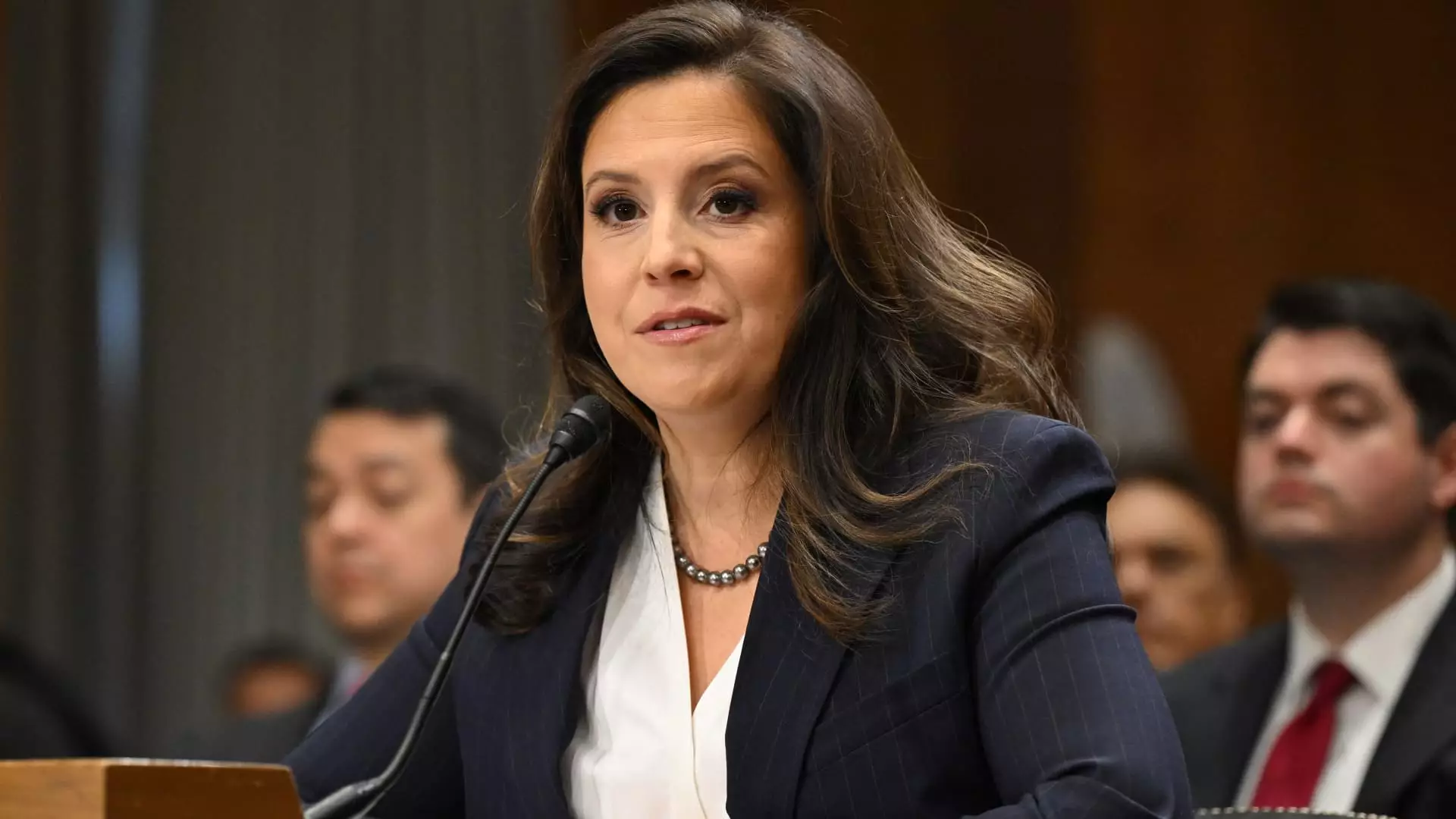President Donald Trump’s recent decision to withdraw Rep. Elise Stefanik’s nomination for U.S. ambassador to the United Nations can be comprehensively dissected through a political lens that highlights the ongoing turbulence of partisan politics. Trump’s rationale for retracting her nomination—a need to maintain every Republican seat in a precarious House majority—exposes a conflation of survivalist instincts and a strategic misstep. In his fervor to unify the party, he may have unintentionally undermined the very cause he claims to champion.
Misplaced Loyalty and Opportunities Lost
Trump’s assertion that Elise Stefanik is a “vital part” of his agenda is a sentiment echoed by many in the Republican circle; however, placing party loyalty over a potential impact on the global stage is a gamble that could haunt his administration. By insisting on her presence in Congress, he is sidelining an opportunity to bolster U.S. diplomatic efforts at a time when global cooperation could be more crucial than ever. The UN role requires individuals who can navigate complex international issues; sidelining potential leaders in favor of a narrow party strategy is short-sighted.
America First or Congress First?
In a post on Truth Social, Trump hails a new phase of American exceptionalism—his “America First Agenda.” However, one must question if this approach is genuinely beneficial or merely a façade for entrenching power within congressional ranks. By insisting on Stefanik’s role in Congress, he shifts focus from international diplomacy, making “Congress First” the true agenda. This sets a dangerous precedent whereby domestic political maneuvering is prioritized over America’s role as a global leader.
Opportunity Knocks, But Will it be Answered?
Trump’s comment that “there are others that can do a good job at the United Nations” raises an additional concern about the quality and caliber of future appointments. This vague assertion lacks the conviction required for such a pivotal role. Not only should the chosen candidate possess the diplomatic finesse that the UN demands, but they should also be committed to enhancing America’s soft power on the global stage. A hasty selection in the aftermath of this political turmoil may signal incompetence rather than resolve.
Future Implications for the Republican Party
While the strategy of prioritizing congressional seats is ostensibly excusable, the underlying implications for the party’s future are troubling. The Republican Party risks being seen as out of touch with the complexities of modern governance, especially when transparency in diplomatic channels will be key to addressing global challenges like climate change or geopolitical tensions. The party must adapt and embrace leaders capable of navigating these complexities rather than clutching onto outdated strategies rooted in old fears.
The Iron Chain of Loyalty
Ultimately, Trump’s move encapsulates both the fear and risk inherent in maintaining absolute party loyalty. It reveals a defensive posture that starkly contrasts with the open-minded approach required for effective governance. In this case, allegiance straddles the thin line between strategy and stagnation. If the goal genuinely is to “Make America Great Again,” then leadership in global diplomacy is not a luxury but a dire necessity—a lesson that the current Republican leadership must strive to remember.


Leave a Reply